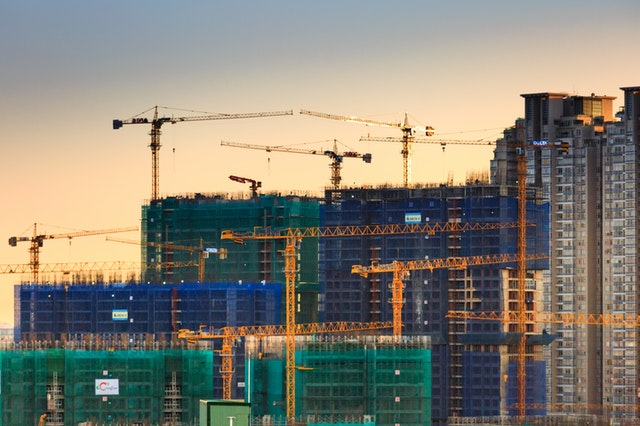For over fifteen years, we have been handling factory insurances in China and we have experienced many issues with building construction, causing significant impact on production lines or commercial activities. Poor construction standards were to blame but consequences for companies using these buildings were sometimes catastrophic: how do you operate a precision line when ground slab is not flat due to defect in construction that appears few years after completion of the building? Those risks are not covered by property all risks and there were no insurance solutions at that time. Only in the past few years did insurers started to offer inherent defect insurance. We explain here what it is about and how it can change the construction standards in China.
What is Inherent Defect Insurance (IDI)?
Inherent defect insurance has different names: it is also called latent defect insurance, or decennial liability insurance due to its coverage length that usually last a decade. Initially implemented in France where it started to be mandatory for all construction projects since 1978, inherent defect insurance is meant to protect building owners against costs of repairing damages following faulty design and construction of a building and which only become apparent after the completion of the building. Those issues will only appear many years after the building construction is done. IDI usually offer coverage lasting 10 years after completion of the building.
Does property all risks insurance cover such risks?
Many clients are assuming that property all risks insurance (PAR) is enough to cover such risks. PAR is indeed covering many risks, like fire, earthquake, storm, or malicious damages. But all PAR policies will need an external cause to activate the policy, and it excludes for that reason damages that are inherent or latent to building construction. It puts insured under a large financial risk if the building is unable to perform its duty, and many issues may arise: issue with ground slab is quite common as well as waterproofing issues, Standard property insurance will not cover those risks.
What about contractual liabilities of general contractors?
General contractor in charge of construction has a professional duty and often provide a warranty through the building construction’s contract. It may suggest that IDI is not necessary. But this warranty is effective only if general contractor is still around in next 10 years and if the damages are significant, it will not be easy to activate this warranty. And suing them will take years.
Isn’t the professional indemnity of contractors supposed to cover this?
Yes, it does, but professional indemnity insurance is very limited. First, professional indemnity is on claim-made basis, so even if you have checked that the general contractor is properly insured when handling your project, general contractor will need to renew the policy for the following 10 years to be fully covered the day the issue is discovered.
Even if you can claim under general contractor’s professional indemnity, it will require a lengthy process and costly legal fees for establishing the responsibility of the loss. During that time, the building may be left unattended, and exposed to further damages. IDI policy does not require to justify negligence to indemnity owner, so process is much more straight forward.
Last, sum insured under professional indemnity are unlikely to reach the level require to cover cost of repair of large development. Underwriting capacity of Chinese insurers is low and unlikely to reach total value of a commercial building.
How can IDI improve building quality?
Considering the amount at stake, insurers involved with IDI need to carefully follow the project from the beginning until completion. They usually appoint professional and independent engineering company that will follow closely the construction and issue regular reports that will be sent to insurer. Final issuance of IDI policy will require construction company to solve all issues that have been noticed during the construction phase. As independent contractor, the engineering supervision organization is reporting only to insurer and provide professional third-party feedbacks that will secure that construction is following strictly the construction requirements. As such, it is a security for future owner of building.
China has made IDI compulsory for many apartments building in China to protect individual owners against faulty design and construction. However, for commercial buildings, it is still rare for such insurance to be put in place despite many obvious good reasons. The main downsides are lack of knowledge for such insurance and the cost, which must be paid at the beginning of the project. But smooth over 10 years, it remains a reasonable long-term protection. We should expect to see more of those policies in coming years.
Contact us if you have any questions ,please get in touch with our team in China.



Comments are closed.